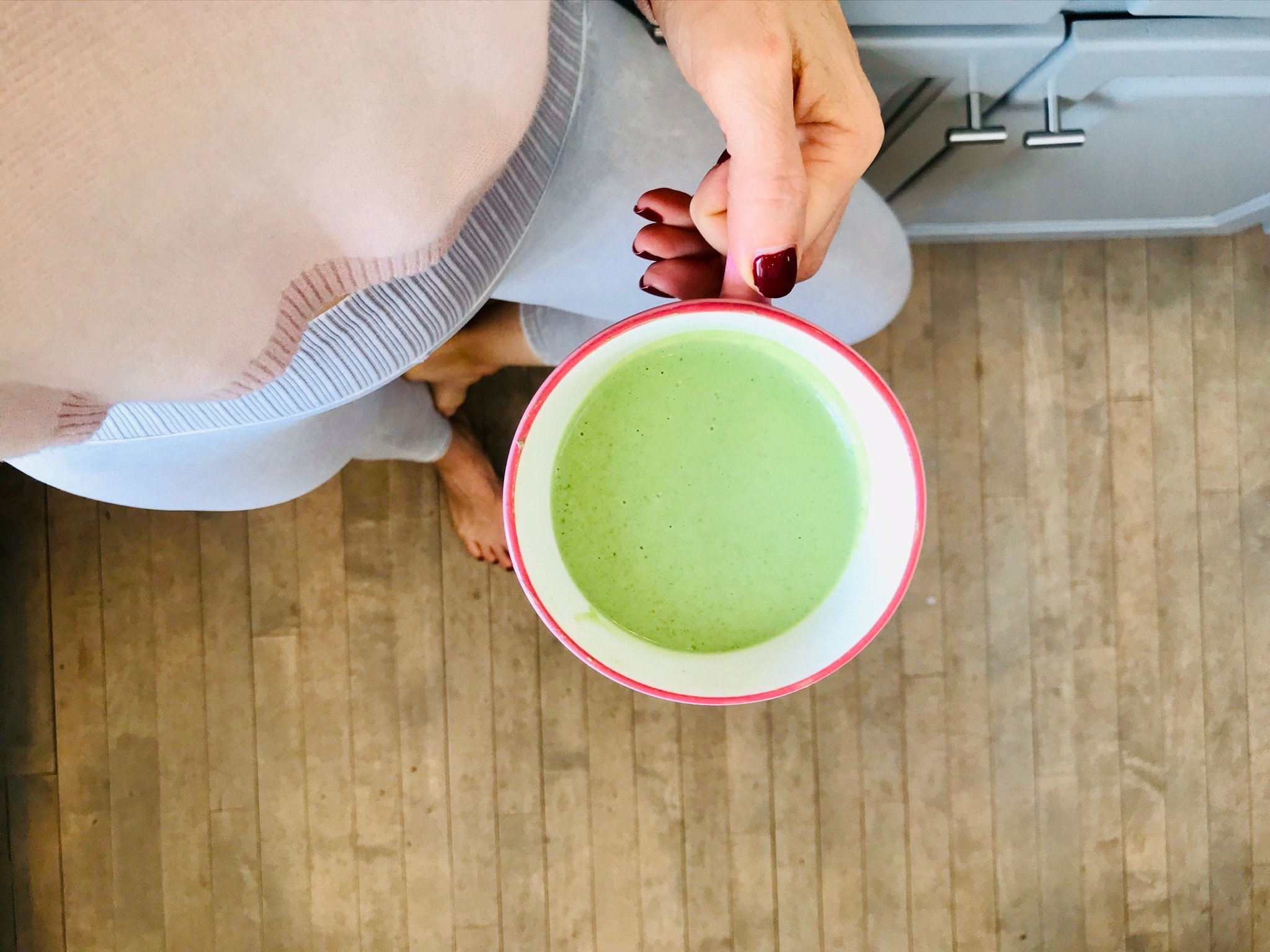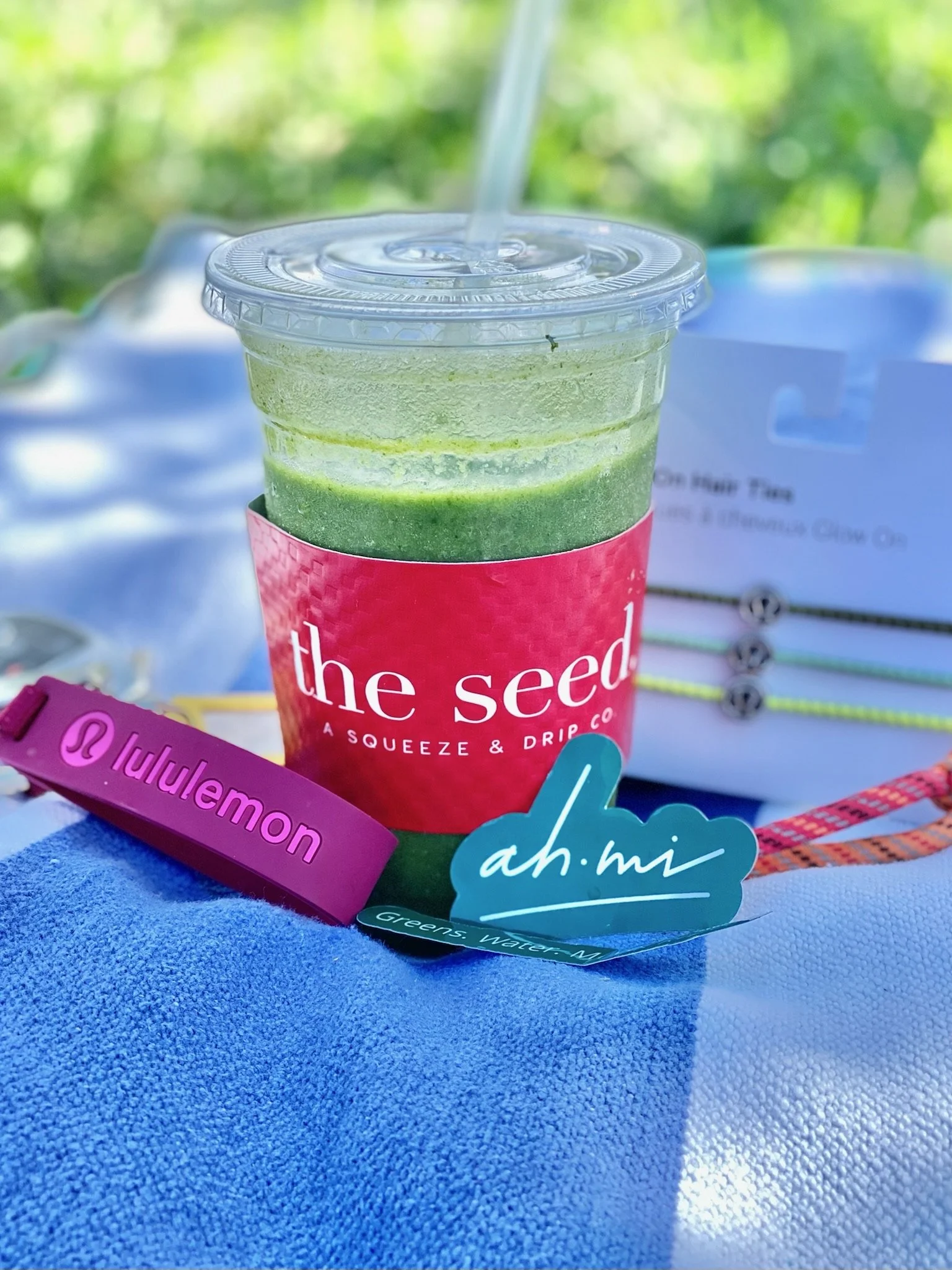Comparing Matcha vs. Coffee
Most of us drink it daily, so we asked Registered Dietitian, Renee, to give us the 101 on MATCHA vs. coffee.
What is matcha?
“Matcha is a type of green tea that’s grown in parts of Japan. What makes it different from other teas is the way that it is harvested. Prior to harvest, the tea bushes and leaves are covered to protect it from sunlight. This boosts the chlorophyll content of the leaves, which is what gives matcha it’s green color. Before consumption, the tea leaves are dried out and ground into a powder which can then be added to hot water to create yummy drinks.”
All things Caffeine
As a dietitian, Renee is often asked if matcha contains more caffeine than a standard cup of coffee. Her answer is: “it’s actually about the same. A standard cup of coffee contains approx. 100 mg of caffeine which is fairly equivalent to a standard cup of matcha. If you’re sensitive to caffeine or often experience nervousness/jitteriness, check with your healthcare provider about the appropriate amount of caffeine for you. As a general rule of thumb, you probably want to avoid it before bedtime.”
How does matcha make you feel?
“The results vary from person to person. Matcha contains a compound called EGCG which is a powerful antioxidant found in green tea like matcha. It has a lot of health benefits. In general, matcha contains natural components like L-theanine which helps support sleep, focus, cognitive function, and symptoms of anxiety.”
Alex, one of our Le Health Club members, said, “I gave up coffee a few months ago and switched to matcha which I love in the morning (I buy the ceremonial grade matcha from Thrive) and I don’t get the jittery anxious feeling I would get after coffee.”
AH.MI TIPS FOR THE OPTIMAL MATCHA EXPERIENCE:
Consider whether you want Ceremonial Grade Matcha or Culinary Grade Matcha. Ceremonial grade matcha is the highest quality grade of matcha; It tends to have a slightly more subtle flavor. Culinary grade matcha is more frequently used for lattes, baked goods, and smoothies as it offers more versatility at a lower price.
Get a bamboo matcha whisk or a handheld frother. Mix the matcha into a thin paste consistency with a small amount of hot filtered water to remove any clumps before adding additional water, milk, etc.
Keep it clean and avoid artificial sugars or additives; sweeten it with local honey or 100% maple syrup.
Add an iced matcha smoothie to your morning rotation ~ Jessica Alba shares her recipe here (1 scoop vanilla protein powder + 1 tsp matcha + 1 tbsp almond/macadamia butter + 1 banana + 12 oz coconut water + 1 cup of ice)


